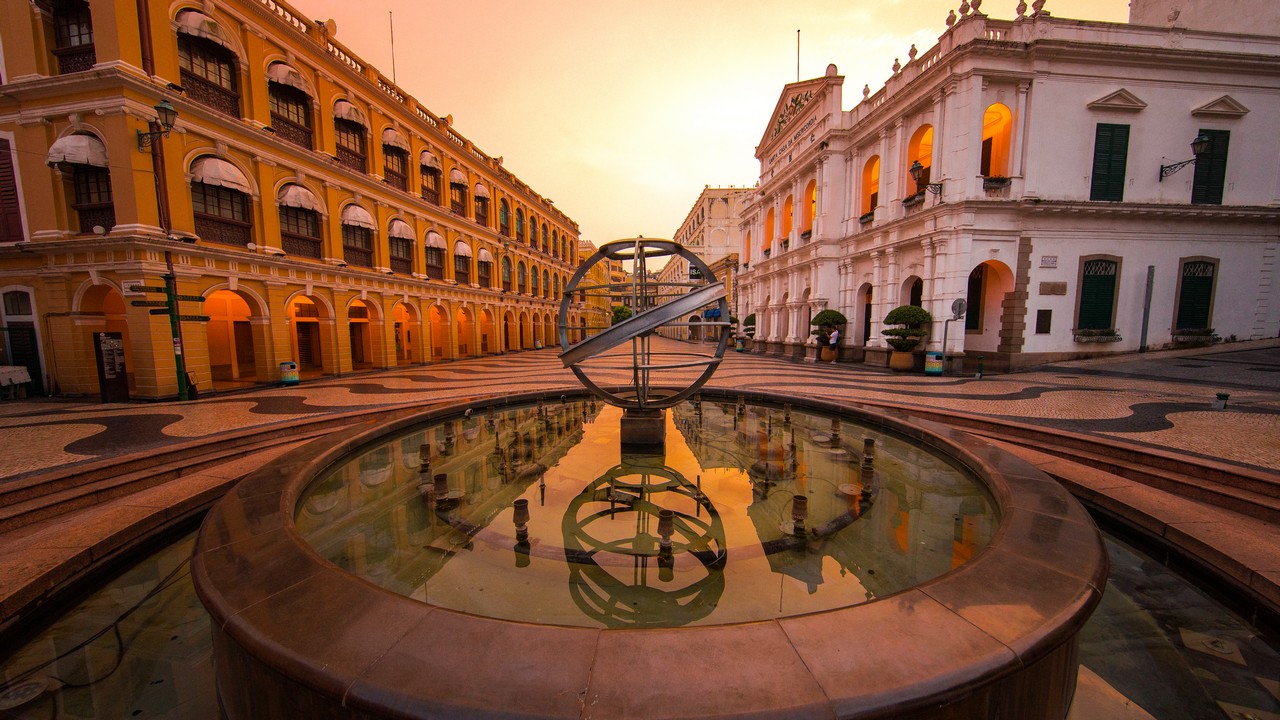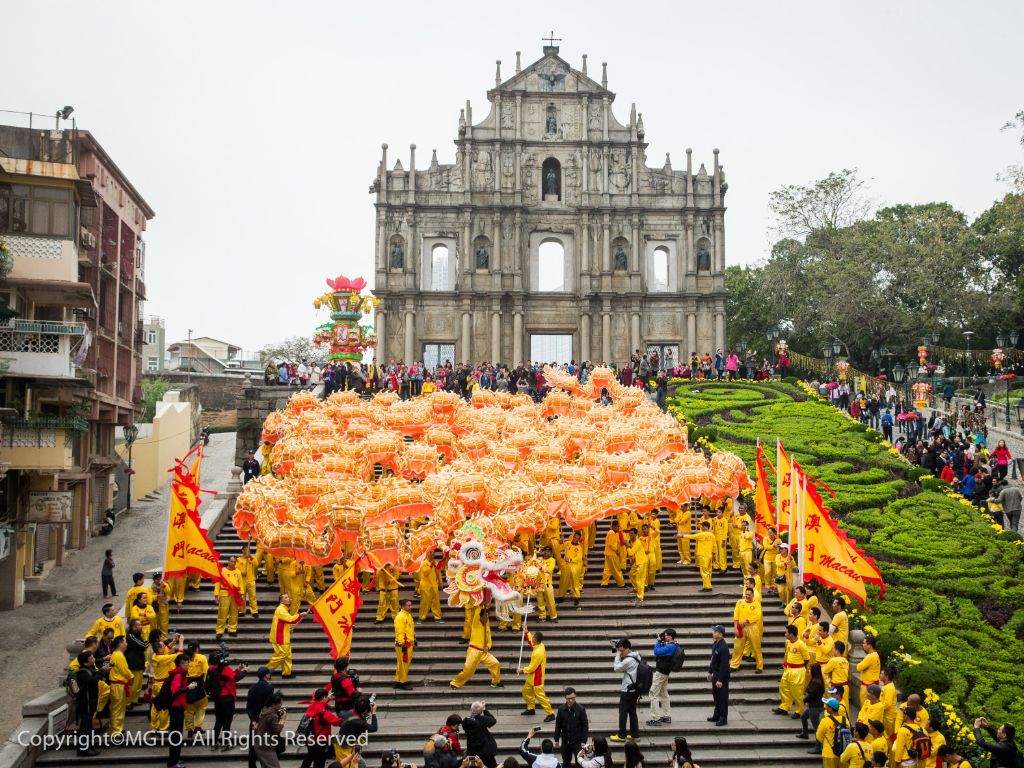
Seamlessly blending Portuguese and Chinese culture, Macao is a city of unique charm, exemplified by the UNESCO World Heritage Site status of its historic centre. Dramatically contrasting with the centre’s old-world charm are the city’s world-class hotels and resorts, expansive tourism and entertainment facilities, luxurious shopping malls and state-of-the-art convention and exhibition venues.
Macao also offers mouth-watering cuisine, glittering night views and a calendar packed full of events, including the Macao Arts Festival, Macao International Dragon Boat Races, Macao International Fireworks Display Contest, Macau Food Festival and Macau Grand Prix.

Ruins of St. Paul's
The Ruins of St. Paul's jointly refer to the facade of what was originally the Church of Mater Dei (built in 1602–1640 and destroyed by fire in 1835) and the ruins of St. Paul's College, which stood adjacent to the church. As a whole, the Church of Mater Dei, St. Paul's College and Mount Fortress (see below) were all Jesuit constructions and formed Macao's ‘acropolis’. The archaeological remains of St. Paul’s College stand witness to what was Asia’s first Western-style university offering an elaborate academic programme. Nowadays, the Ruins of St. Paul’s symbolically function as an altar to the city.

A-Ma Temple
The A-Ma Temple existed long before the city of Macao came into being. It consists of the Gate Pavilion, the Memorial Arch, the Prayer Hall, the Hall of Benevolence, the Hall of Guanyin, and Zhengjiao Chanlin (a Buddhist pavilion). The variety of pavilions here that are dedicated to the worship of different deities within a unified complex make A-Ma Temple an exemplary representation of the true diversity of Chinese culture, inspired by Confucianism, Taoism, Buddhism and multiple folk beliefs.

Mount Fortress
Built in conjunction with the Jesuits from 1617 to 1626, this was once Macao’s principal military defence structure. The fortress was equipped with cannons, military barracks, wells and an arsenal that held sufficient ammunition and supplies to endure a siege lasting up to two years. The fortress covers an area of 10,000 square metres and is in the shape of a trapezoid. The four corners of the fortress protrude to form bulwarks.
Discover more: en.macaotourism.gov.mo
Getting there from Hong Kong
Ferry
Around 60 minutes via high-speed ferry from Hong Kong Island or Kowloon
Bus
Around 45 minutes via the Hong Kong-Zhuhai-Macao Bridge shuttle bus
Coach
Around 2 hours from locations across Hong Kong




